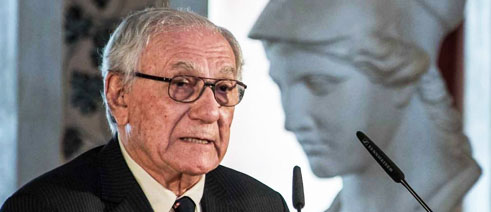
For some of al-Azm's publications, click on the widget below:
Introducing alternative voices from the Muslim world (2008-2020)

 |
| Ebrahim Moosa |
"the Madrasa used to be, once upon a time, a part of Islamdom's republic of letters, republic of knowledge, including cosmopolitan knowledge as well. But over time, in the Indian-subcontinent in particular, Madrasas have become more like institutions that are interested in identity formation, and also have become, what I call, a republic of piety. We have more piety, and less intellectual energy and the kinds of religious answers that deal with reality.”The designation 'critical traditionalist' also colours how he interprets the idea of 'progressive Islam'.
progressive Islam doesn't mean changing the Quran or changing Hadith, but is instead about having alternative methodological approaches that are going to allow us to find different kinds of answers from tradition, and answers that will be much more amenable to our experiences and our way of life, be much more equitable.
“The key thing about progressive or critical traditionalist approach in Islam, to me, is that we must see that all knowledge must substantiate and support the fulfilment of human dignity. Human dignity is at the core of all Islam's messages. And if knowledge does not deliver on human dignity, then that knowledge really is questionable. So those kinds of interpretations of the past that talked about non-Muslims in a particular way, that talked about women in a particular way, are no longer dignified. That has to change. You can only change it when you are prepared to ask questions, and are prepared to challenge the paradigm of interpretation that has been prevalent thus far.”In another recent occasion, he noted that this requires a reinvention of Islam or, what I consider a more accurate suggestion: a need for Muslims to reinvent themselves. According to Moosa this means shedding:
[the] imprint of what I would term imperial Islamic political theology. As a throwback to former times, this imperial political theology needs to be excised from the political and religious imagination through critical appraisal, questioning, [...]Ebrahim Moosa breaks ground for a bold and robust engagement with the Islamic tradition, and his own writings testify of a daring rethinking of religion in postfoundationalist terms. He also demonstrated that in the Third Ibn Rushd Lecture of the Muslim Institute in London:
Critical Muslims introduces innovative and creative thinkers from the contemporary Islamic world. In many Muslim countries the political climate is not conducive to free and open debate. Consequently, these intellectuals have often difficulties in finding a forum to expound their ideas, or face severe criticism and even outright oppression and persecution. Not surprisingly, quite a few have sought refuge abroad.
Although there is at present a considerable interest in things Islamic outside the Muslim world, as a result of a series of deplorable events and developments, media coverage — and much scholarship too — is predominantly geared towards radical and extremist exponents of political Islam.
This site is intended as a platform for presenting alternative currents of thought.
